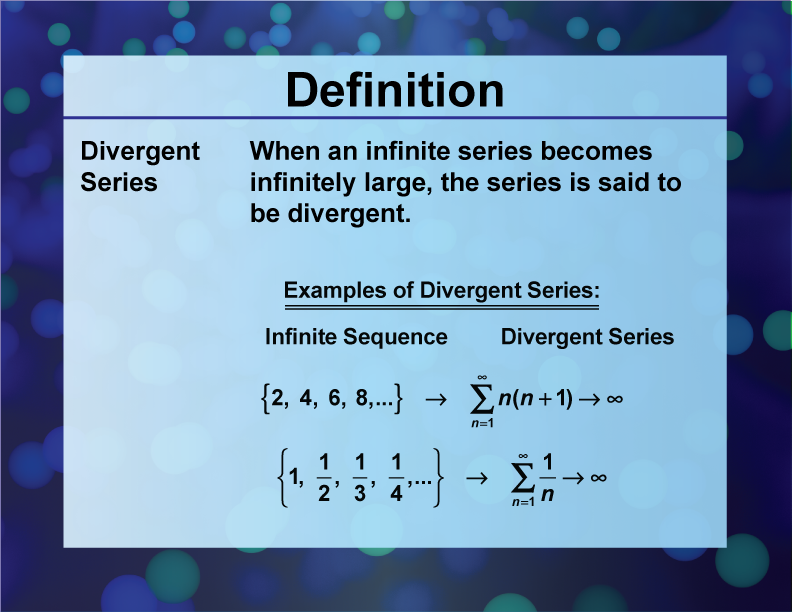
Display Title
Definition--Sequences and Series Concepts--Divergent Series
Display Title
Divergent Series

Topic
Sequences and Series
Definition
A divergent series is a series whose terms do not approach a specific value as the number of terms increases.
Description
A divergent series is a significant concept in the study of sequences and series, where the sum of its terms does not approach a finite limit as the number of terms increases. This concept is essential in various mathematical and scientific applications, including calculus and analysis.
In real-world applications, divergent series are used in situations where growth or decay is unbounded, such as in certain economic models or in the study of fractals. Algebraically, a series is divergent if the sequence of partial sums Sn does not approach a finite limit as n approaches infinity.
Understanding divergent series is crucial for math education as it provides a foundation for more advanced topics in calculus and analysis. It helps students develop skills in recognizing and analyzing series behavior, which are essential for higher-level mathematics and various scientific fields.
For a complete collection of terms related to sequences and series click on this link: Sequences and Series Collection
| Common Core Standards | CCSS.MATH.CONTENT.6.SP.B.4, CCSS.MATH.CONTENT.HSF.IF.A.3, CCSS.MATH.CONTENT.HSF.BF.A.2, CCSS.Math.CONTENT.HSF.LE.A.2 |
|---|---|
| Grade Range | 6 - 9 |
| Curriculum Nodes |
Algebra • Sequences and Series • Series |
| Copyright Year | 2021 |
| Keywords | data analysis, arithmetic sequence, common difference, definitions, glossary terms, geometric sequence, common ratio |